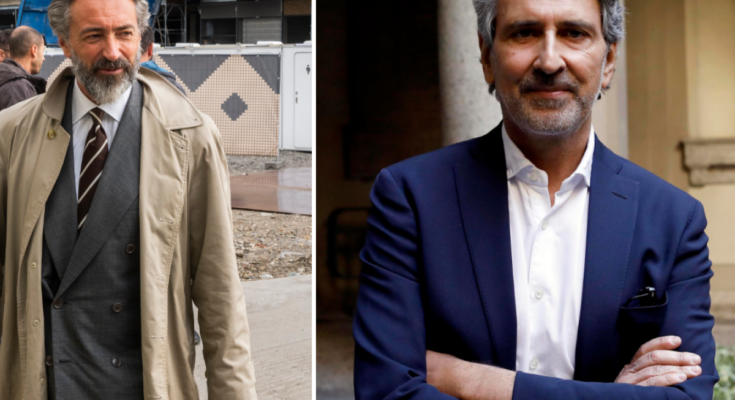The political and business dome (prosecutors call it that) governing Milan’s city planning exists only in the theories of the Public Prosecutor’s Office. Yesterday morning an order came from the Court of Cassation that definitively annulled the blitzkrieg in which on July 31 arrested seven suspects who, according to the investigative team led by deputy prosecutor Tiziana Siciliano, were primarily responsible for the conquest of building construction in the capital of Lombardy to powerful forces.
Builder Manfredi Catella (photo left), former councilor Giancarlo Tancredi (photo right) and four other suspects are under house arrest; builder Andrea Bezziccheri had been confined to San Vittore where he remained for twelve days. The raid was annulled in the following days by the Court of Judicial Review, which one by one released all those arrested: and by that time, the blow had already been very heavy for the Prosecutor’s Office. But Siciliano and his prosecutors have not given up, and have taken the conflict to the Supreme Court, arguing that in Milan there was an “organized division of territory and buildings”, accusing the judges who had acquitted the seven suspects of “radical negligence in the analysis of the decisive elements” and concluding with a demanding statement: “To ignore the above is to ignore the rule of law”.
Behind the harshness of these expressions, we can feel how decisive it was for the Prosecutor’s Office to win the fight, to keep alive the investigative symbol of their moral calling, which put them on a collision course with the council led by Mayor Beppe Sala. But yesterday’s appeal to the Supreme Court backfired, as the definitive cancellation of the arrest order now jeopardizes the trial that the prosecutor wanted to continue: however, with the Dome theorem gone, it risks being reduced to a banal trial for a building violation.
The risk of failure of the Prosecutor’s Office became apparent last week, when the opinion that the Prosecutor General’s Office in Cassation – that is, the highest body of the public prosecutor – had submitted in the framework of the trial was presented: an opinion that dismantled the thesis of the Milan prosecutors at its root, defined the decision of the Court of Judicial Review as “logical and free from defects”, that did not “ignore any element of the evidence offered by the parties”, and reached the conclusion: in Milan there is “excessive closeness between the public and the private sector due to the many inappropriate contacts between politicians and builders” (it should be said well, through the chat between Catella and the mayor Sala). But corruption is something else.
In Milan, the prosecutor’s office is taking a bad attitude towards the case, but they still hope that the judges in the Sixth Division of the Supreme Court will think differently. But not. The hearing on Wednesday was one-sided: the public prosecutor’s office reiterated no to the Milan prosecutor’s appeal, the suspects’ lawyers asked the same thing, and the Court accepted their thesis. There are important details that show how the Court of Cassation went further than what the Milan prosecutor’s office feared. In addition to canceling the arrest order, the judge also canceled the last provision left in place by the Judicial Review, namely the prohibition of three suspects from holding public office including former council member Giancarlo Tancredi, who had at least some indication of guilt. The Supreme Court also abolished it. We must now wait for the submission of reasons to understand how hard the blow to the Milan investigation was dealt.
Of course, the fact that Section Six declared the appeal “inadmissible” makes it clear that there was no basis for questioning the order of release of the arrested persons.
However, in the closed hearing, the defense of the suspects have highlighted a significant “hole” in the appeals process carried out by the Milan prosecutor’s office: never, even a single line, was explained about the need for precautionary measures, the reasons which – since the investigation is already at an advanced stage – necessitated the arrest of the seven people. This serious gap may also have led to the drastic decision taken yesterday morning.



